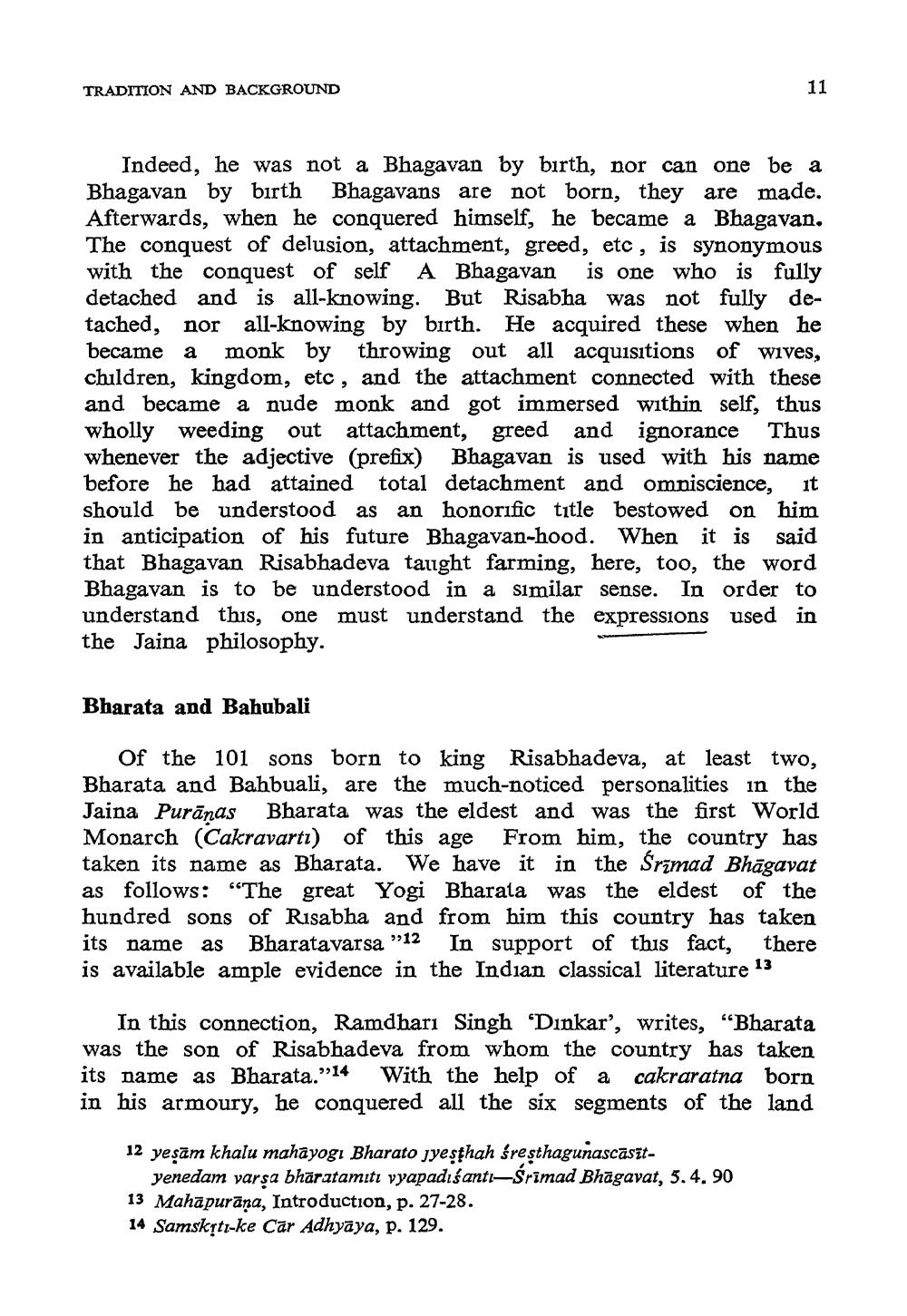________________
TRADITION AND BACKGROUND
Indeed, he was not a Bhagavan by birth, nor can one be a Bhagavan by birth Bhagavans are not born, they are made. Afterwards, when he conquered himself, he became a Bhagavan. The conquest of delusion, attachment, greed, etc, is synonymous with the conquest of self A Bhagavan is one who is fully detached and is all-knowing. But Risabha was not fully detached, nor all-knowing by birth. He acquired these when he became a monk by throwing out all acquisitions of wives, children, kingdom, etc, and the attachment connected with these and became a nude monk and got immersed within self, thus wholly weeding out attachment, greed and ignorance Thus whenever the adjective (prefix) Bhagavan is used with his name before he had attained total detachment and omniscience, It should be understood as an honorific title bestowed on him in anticipation of his future Bhagavan-hood. When it is said that Bhagavan Risabhadeva taught farming, here, too, the word Bhagavan is to be understood in a similar sense. In order to understand this, one must understand the expressions used in the Jaina philosophy.
Bharata and Bahubali
Of the 101 sons born to king Risabhadeva, at least two, Bharata and Bahbuali, are the much-noticed personalities in the Jaina Purānas Bharata was the eldest and was the first World Monarch (Cakravartı) of this age From him, the country has taken its name as Bharata. We have it in the Srimad Bhāgavat as follows: "The great Yogi Bharata was the eldest of the hundred sons of Risabha and from him this country has taken its name as Bharatavarsa "12 In support of this fact, there is available ample evidence in the Indian classical literature 13
In this connection, Ramdharı Singh 'Dinkar', writes, "Bharata was the son of Risabhadeva from whom the country has taken its name as Bharata."14 With the help of a cakraratna born in his armoury, he conquered all the six segments of the land
12 yesām khalu mahayogi Bharato jyesthah śreşthagunascasit
yenedam varsa bharatamıtı vyapadıśantŚrīmad Bhagavat, 5.4.90 13 Mahapurāna, Introduction, p. 27-28. 14 Samskrti-ke Car Adhyaya, p. 129.




